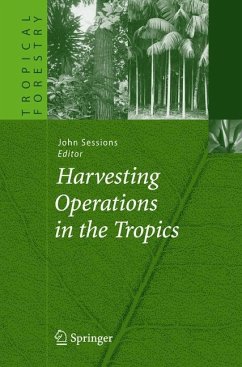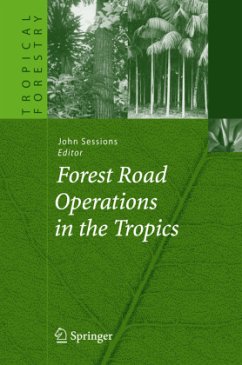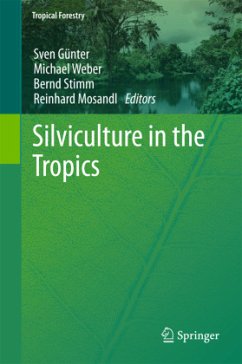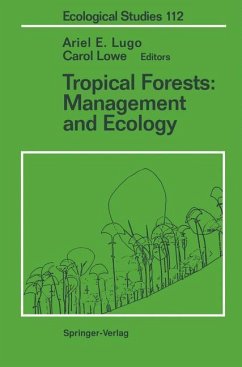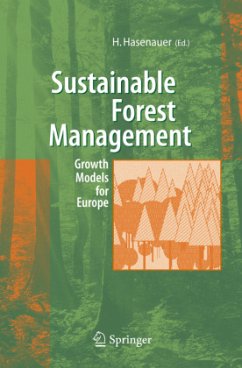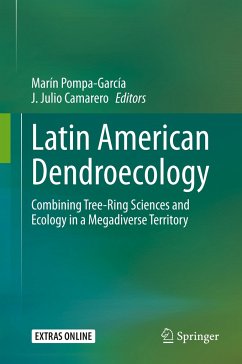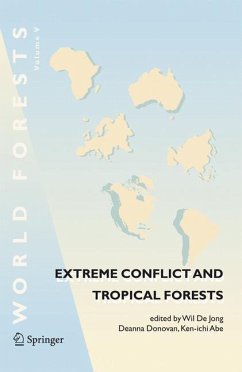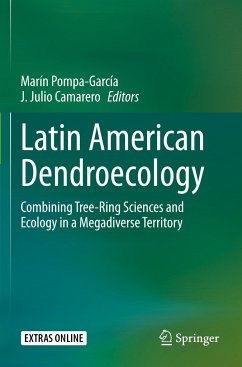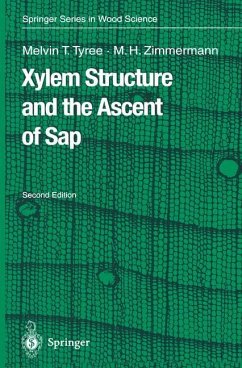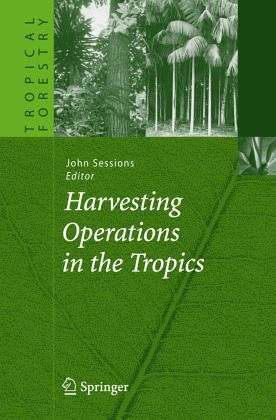
Harvesting Operations in the Tropics
Versandkostenfrei!
Versandfertig in 6-10 Tagen
83,99 €
inkl. MwSt.

PAYBACK Punkte
42 °P sammeln!
Harvesting includes all the activities to fell trees and remove them from the forest to the roadside for loading and transport from the forest. Harvesting and extraction operations are the activities that generally cause the most significant impacts on forest managed for timber production. Sustainable forest mana- ment is concerned with management of forests in such a way as to control the impacts associated with harvesting and timber extraction. Harvesting and extraction for sustainable timber production in natural forests are not to be confused with logging associated with land conversion ac...
Harvesting includes all the activities to fell trees and remove them from the forest to the roadside for loading and transport from the forest. Harvesting and extraction operations are the activities that generally cause the most significant impacts on forest managed for timber production. Sustainable forest mana- ment is concerned with management of forests in such a way as to control the impacts associated with harvesting and timber extraction. Harvesting and extraction for sustainable timber production in natural forests are not to be confused with logging associated with land conversion activities such as c- version to permanent or temporary agriculture, pasture land, or domesticated trees. Much of the impact of harvesting and extracting can be reduced through proper planning and control of harvesting operations using principles, s- tems, and techniques common to temperate forests. However, many areas of the tropics pose unique operating conditions: heat, high humidity, hi- intensity precipitation, occurrence of certain diseases, and lack of rock for su- able road surfacing. In natural forests, clear felling is rarely practiced, and many species are the rule with few commercial species on any hectare; thus, log removals per unit area are low.



